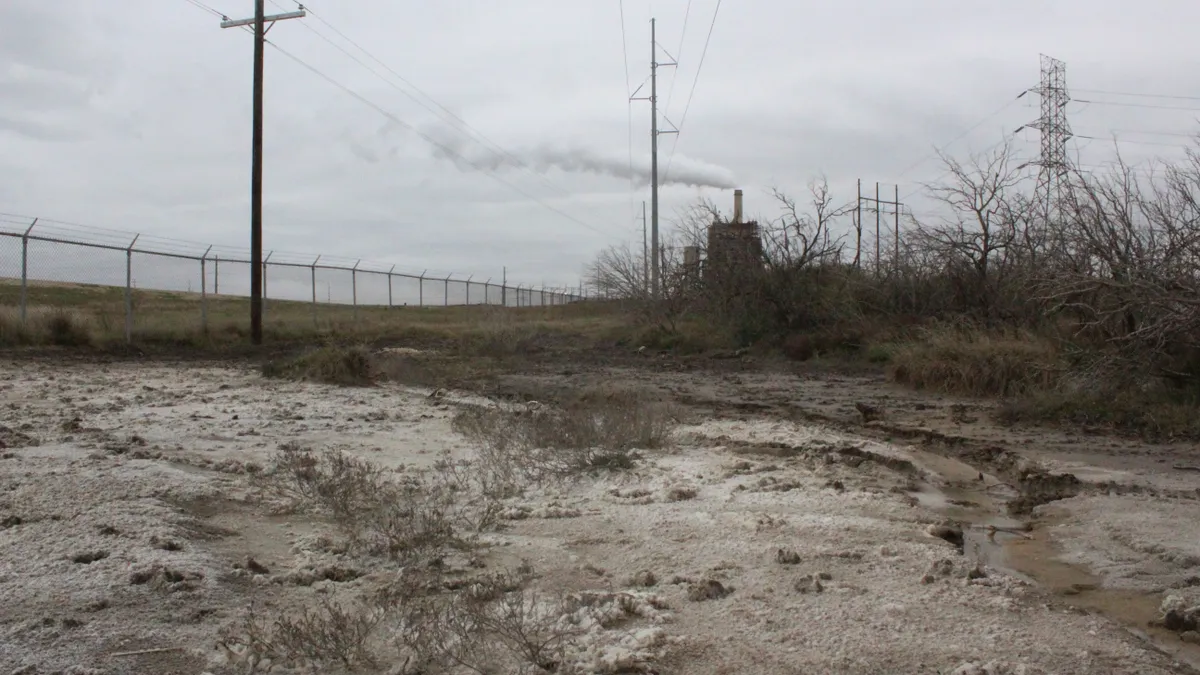Dive Brief:
-
The U.S. Environmental Protection Agency on Thursday proposed to approve a partial permit program that would give Texas greater authority over its coal ash regulation.
-
Texas' Commission on Environmental Quality (CEQ) in September asked the EPA to approve a partial permit for its coal combustion residual (CCR) program that would allow it to take over coal ash management from the EPA. EPA would retain "its inspection and enforcement authorities," according to the agency's filing.
-
If approved, Texas would be the third state in the U.S. to run or partially run its own permitting program for coal ash management, all approved under the Trump Administration.
Dive Insight:
EPA in 2018 loosened its 2015 CCR rule, in part to allow states more "flexibility" in implementing the Obama-era law. Its final rule allows states to devise their own permitting program as long as state regulations match federal compliance or are "at least as protective" as federal requirements.
The Texas CEQ applied to take over part of the coal ash oversight in the state, but is leaving some provisions to continued federal scrutiny.
"EPA continues to encourage other states to assume oversight of coal ash management within their borders," said EPA Administrator Andrew Wheeler in a statement. "Texas deserves credit for taking over this responsibility and we are committed to working with the states as they establish coal ash programs tailored to their unique circumstances that are protective of human health and the environment."
Georgia and Oklahoma are the only two states in the U.S. to operate their own permitting programs for coal ash. Oklahoma became the first state to operate its own program in June 2018, and Georgia's was approved in 2019.
Texas is home to 15 coal plants, all of which exceed federal groundwater standards for one or more pollutant at their sites, according to a 2019 study from the Environmental Integrity Project.
EPA is opening up the proposal to a 60 day comment period and will hold a public hearing on Feb. 2, 2021, after President-elect Joe Biden takes office. Environmental groups, including the Sierra Club, said they are still reviewing the proposal and plan to file comments.















